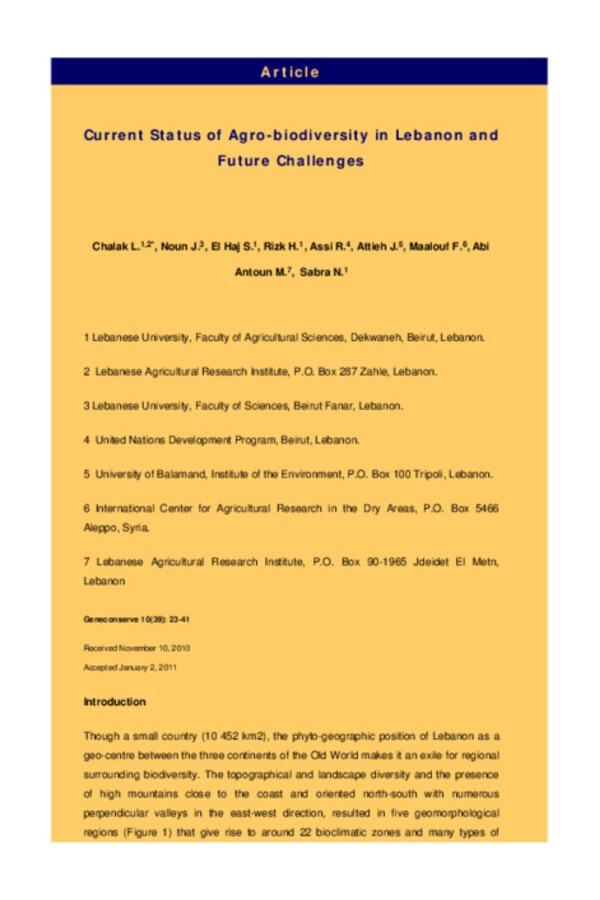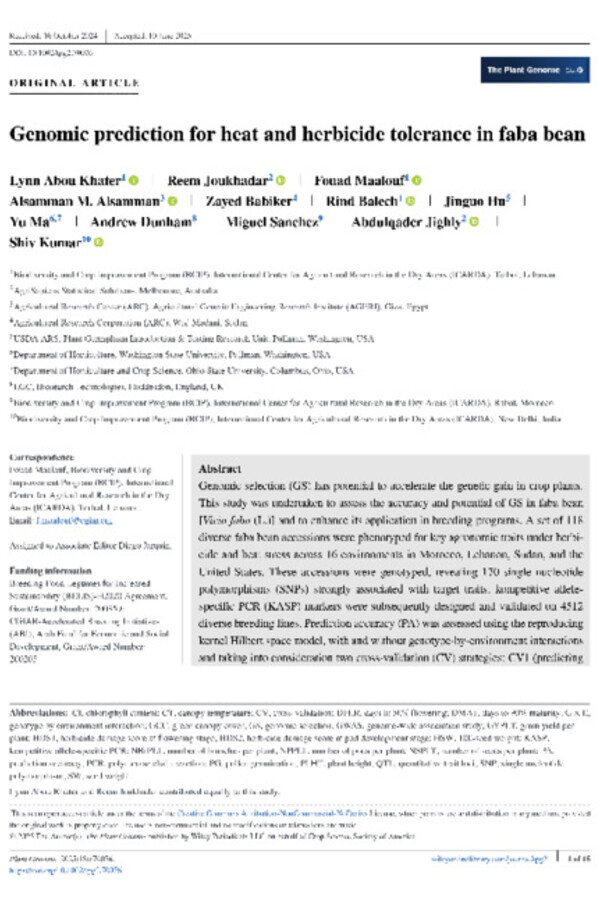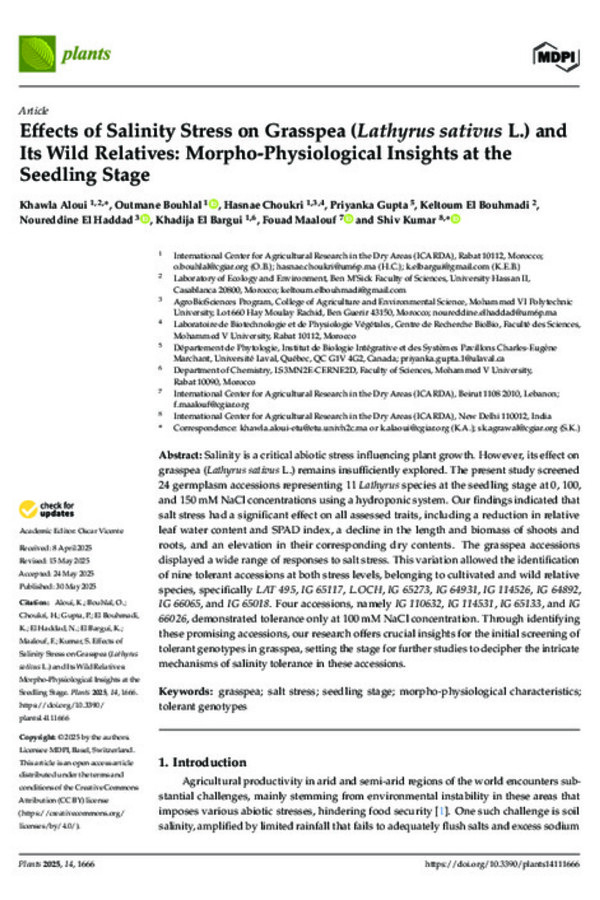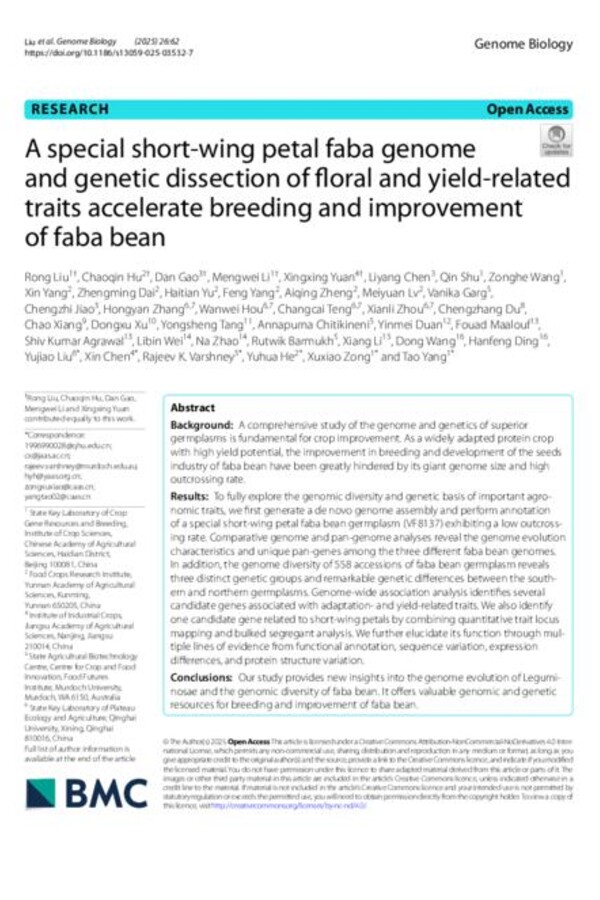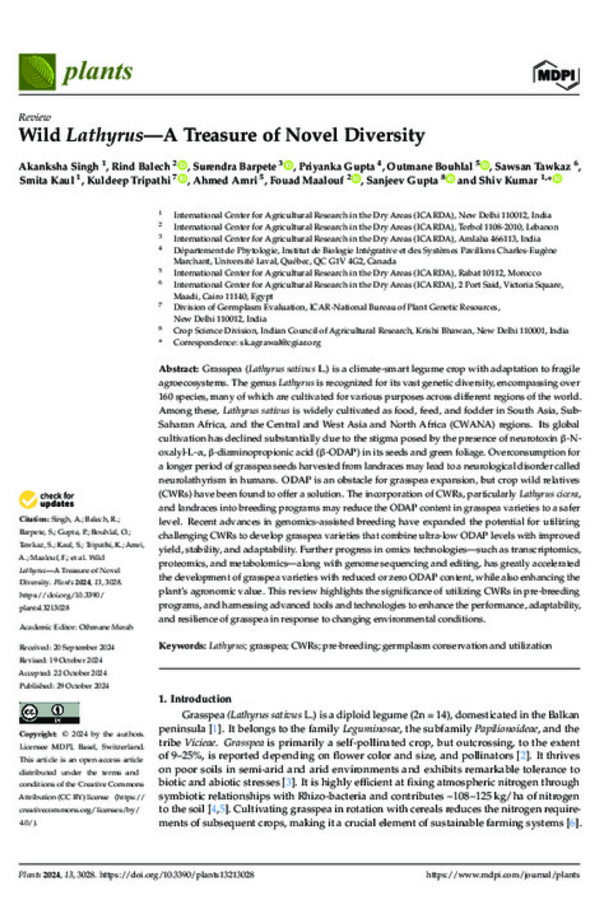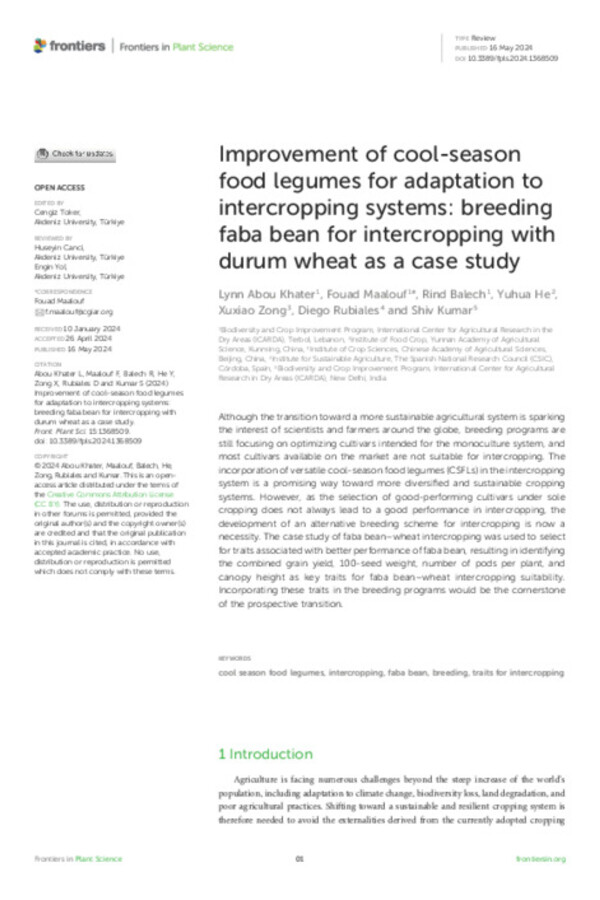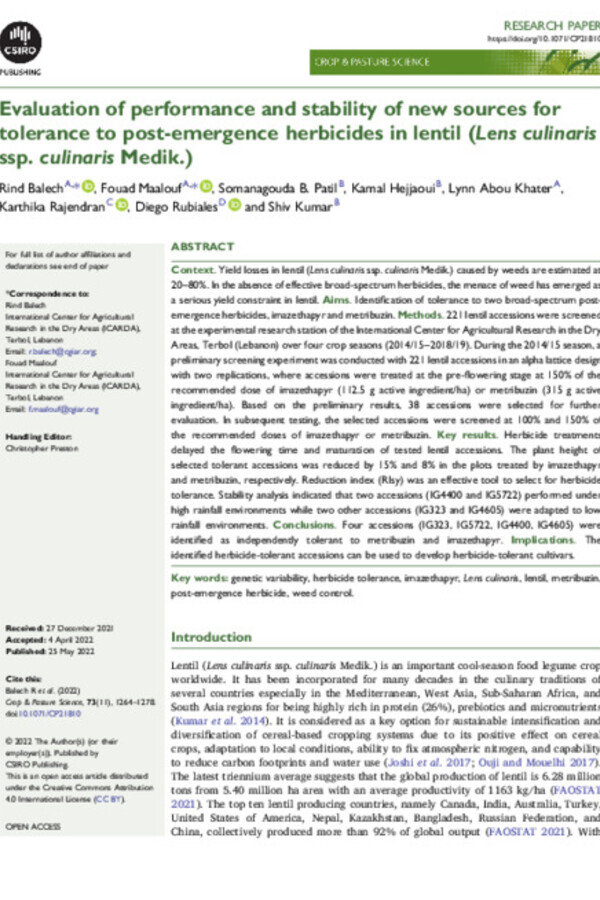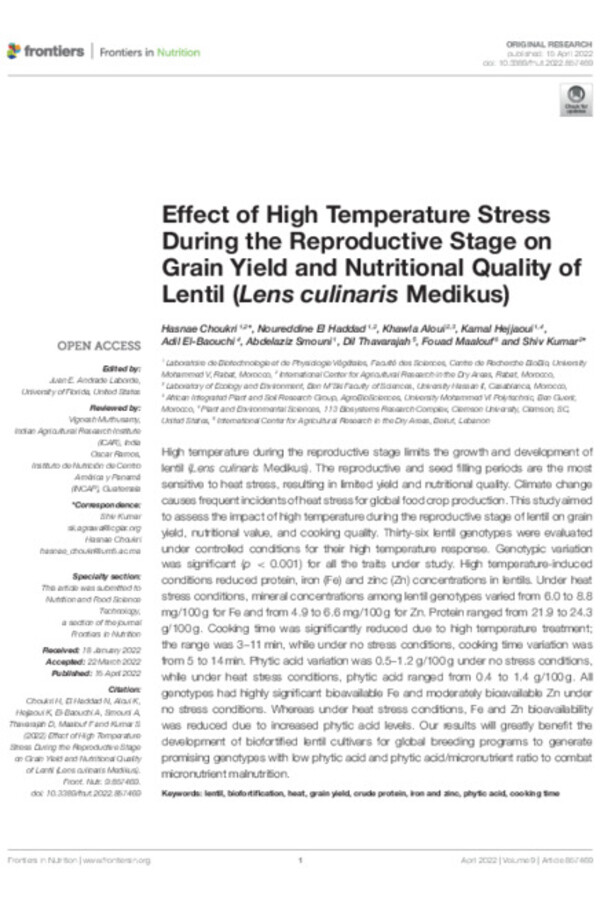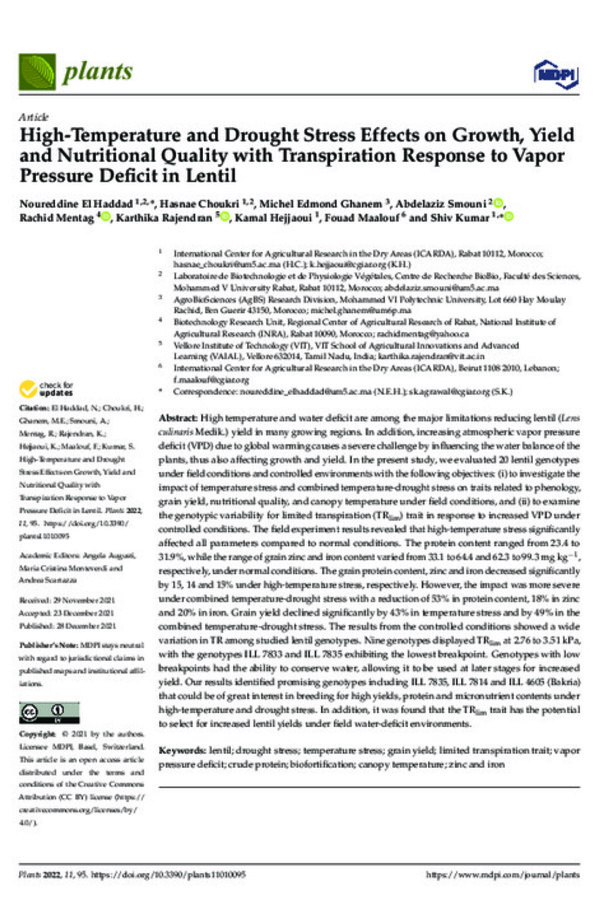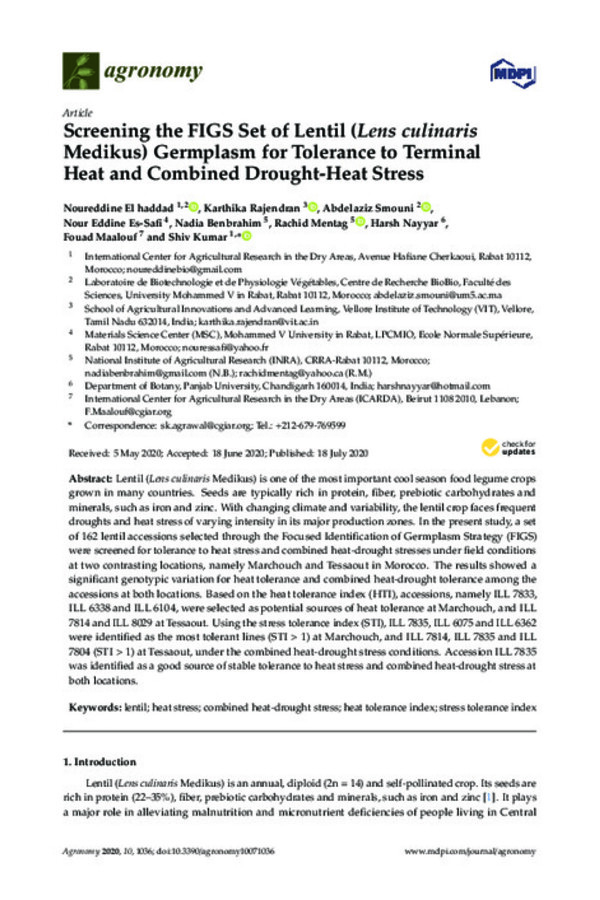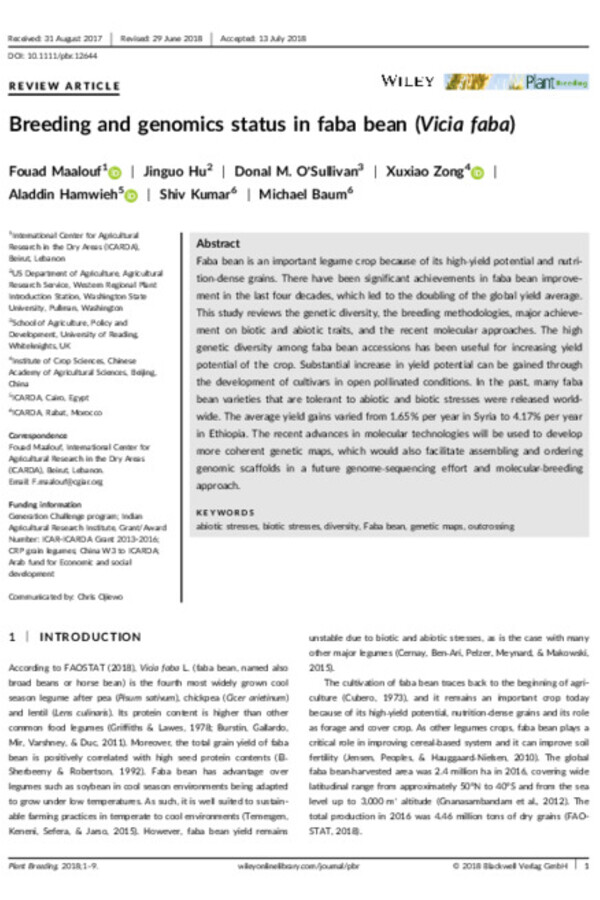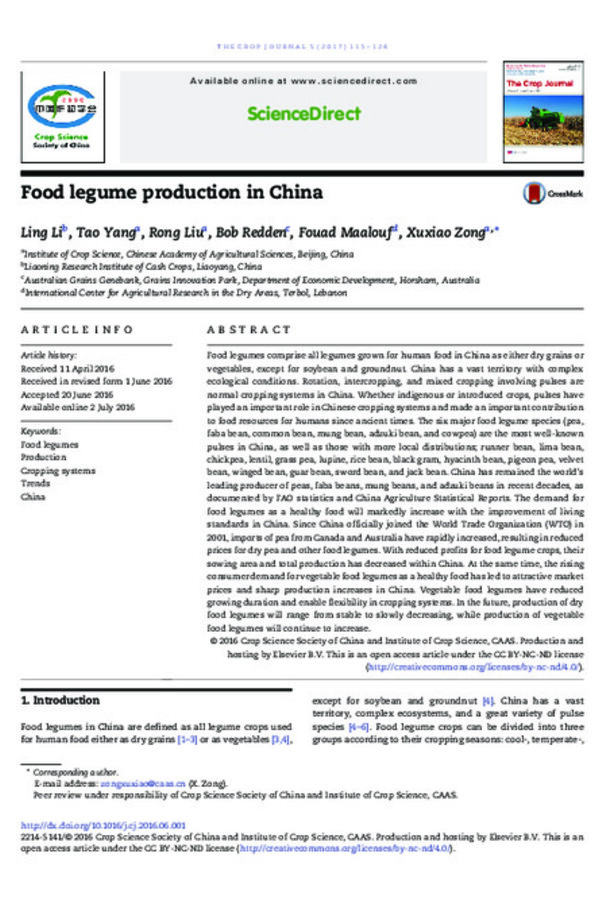
Dr. Fouad Maalouf joined ICARDA as a senior scientist in 2007. His current research focuses on fava bean improvement. He has supervised 19 students on different aspects of fava bean breeding, and has authored or co-authored more than 42 research publications, including 32 referenced journal articles. He has contributed to the release of 16 fava bean varieties.
Prior to joining ICARDA, Maalouf coordinated the Lebanese component of an EU project targeting improved water-use efficiency in durum wheat, and taught botany and genetics at Saint Joseph University, Lebanon, and the Lebanese University. He holds a Ph.D. and completed a post-doc on fava bean breeding at Cordoba University, Spain, focused on the development of synthetic fava bean varieties.
Fouad Maalouf's Publications

Building climate resilience in the MENA region: a feminist political ecology of agroecology and neglected and underutilized crop species

Genetic variations for tolerance to heat and water stress in wild and cultivated lentils

Multi-Environment QTL Mapping of Rust Resistance in Faba Bean (Vicia faba L.) to Uromyces viciae-fabae
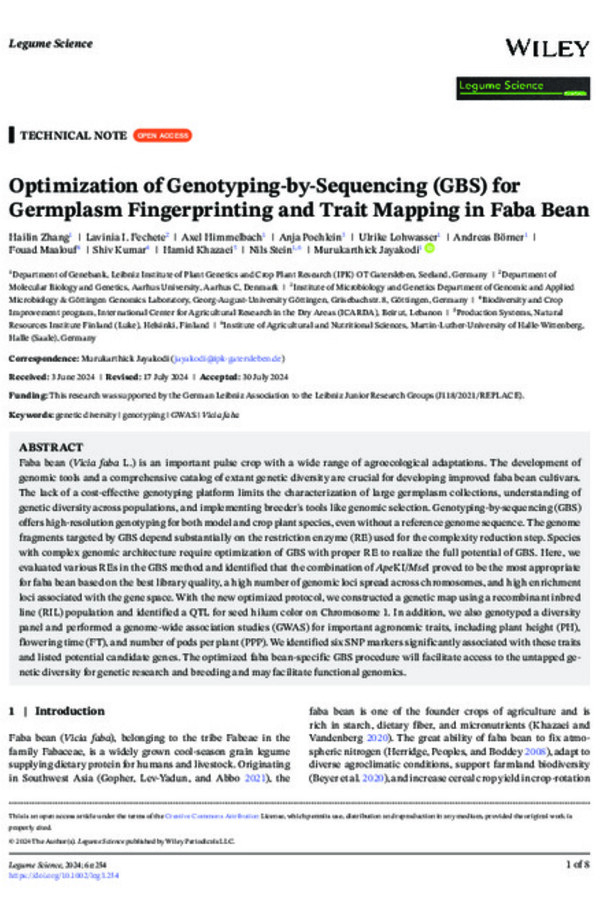
Optimization of Genotyping-by-Sequencing (GBS) forGermplasm Fingerprinting and Trait Mapping in Faba Bean
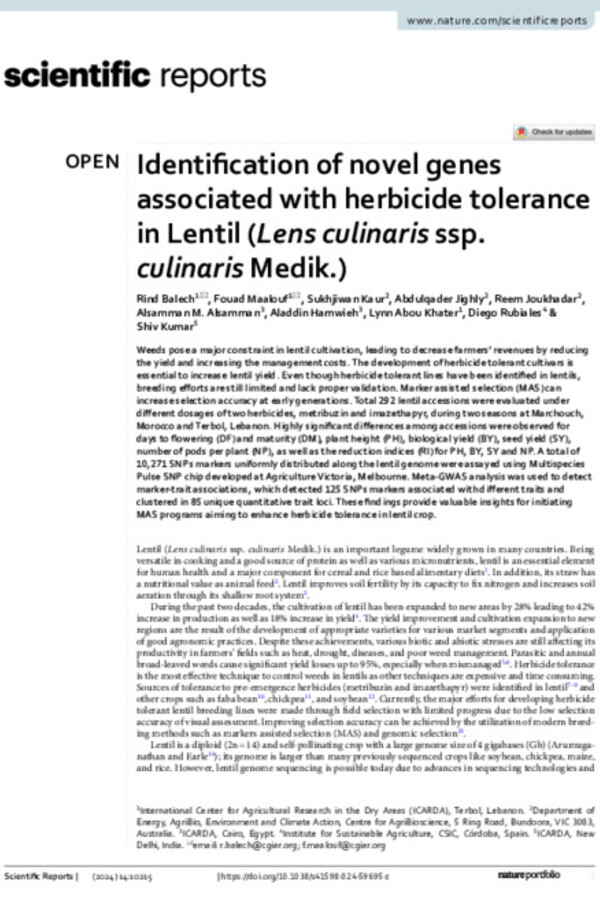
Identification of novel genes associated with herbicide tolerance in Lentil (Lens culinaris ssp. culinaris Medik.)
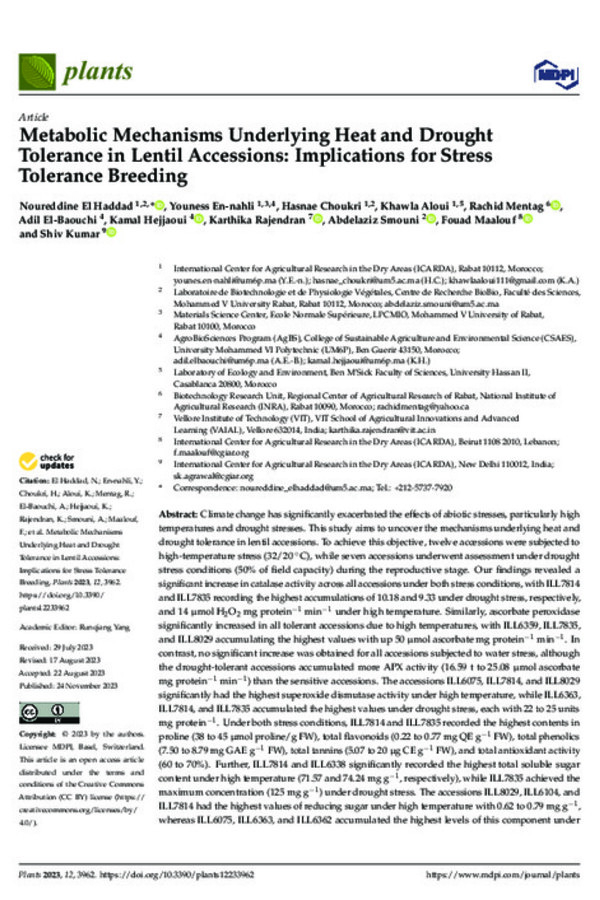
Metabolic Mechanisms Underlying Heat and Drought Tolerance in Lentil Accessions: Implications for Stress Tolerance Breeding
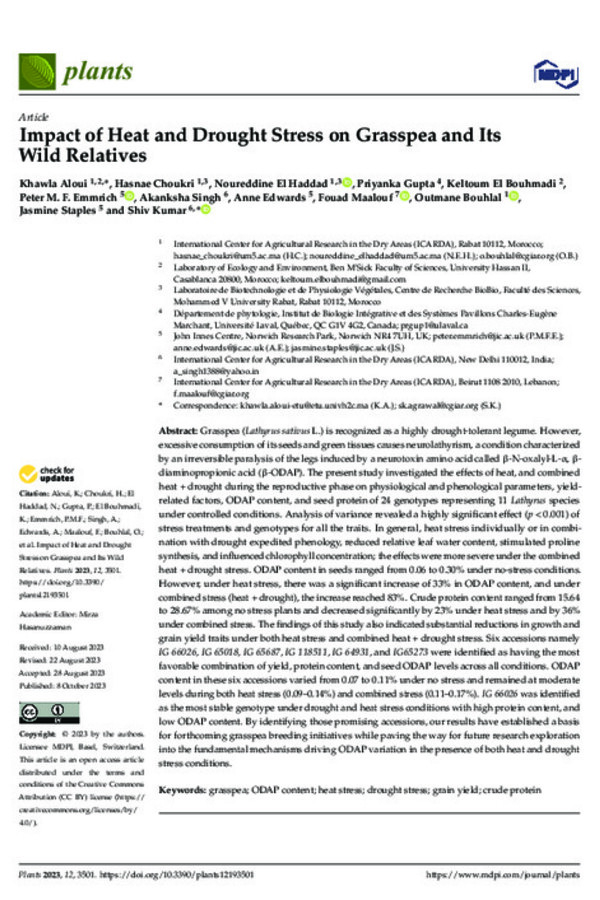
Impact of Heat and Drought Stress on Grasspea and Its Wild Relatives
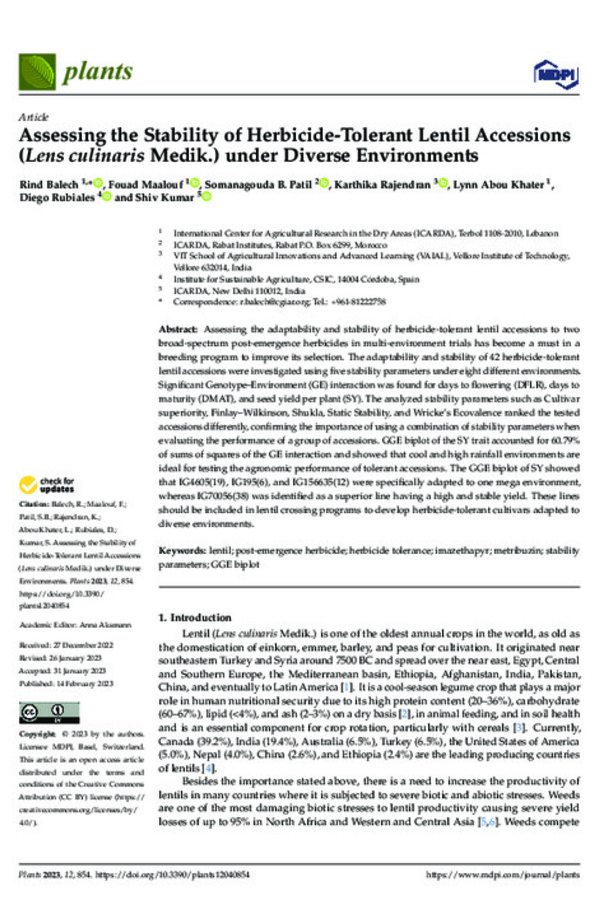
Assessing the Stability of Herbicide-Tolerant Lentil Accessions (Lens culinaris Medik.) under Diverse Environments
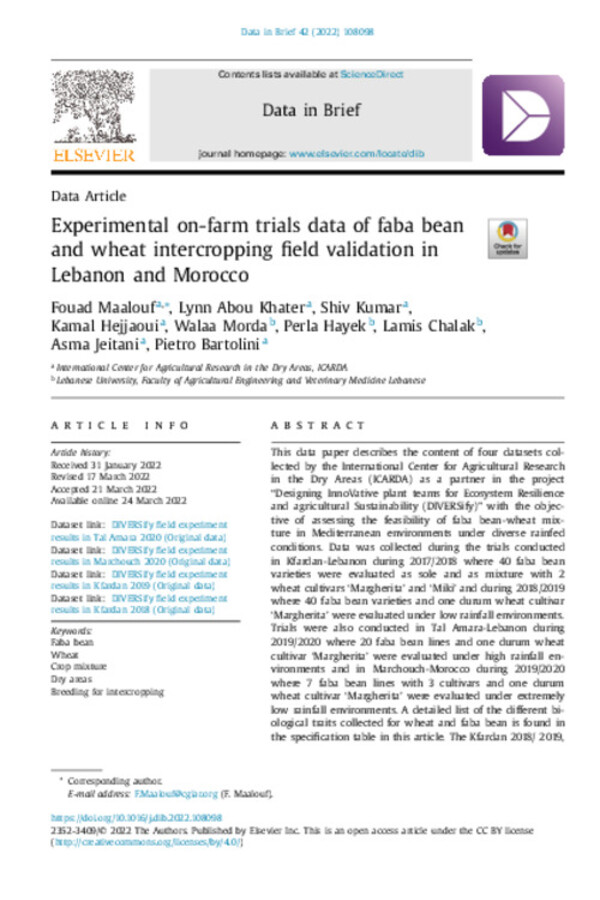
Experimental on-farm trials data of faba bean and wheat intercropping field validation in Lebanon and Morocco
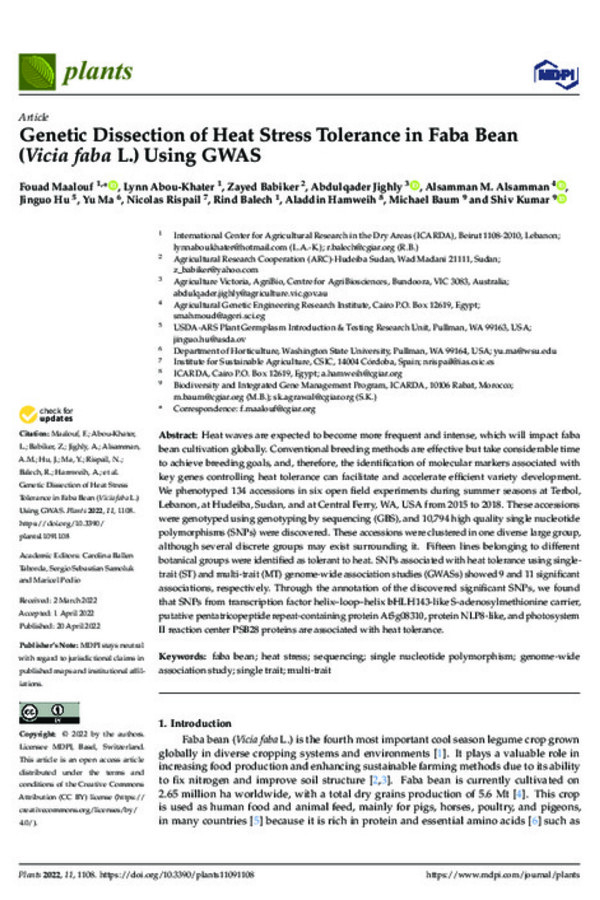
Genetic Dissection of Heat Stress Tolerance in Faba Bean (Vicia faba L.) Using GWAS
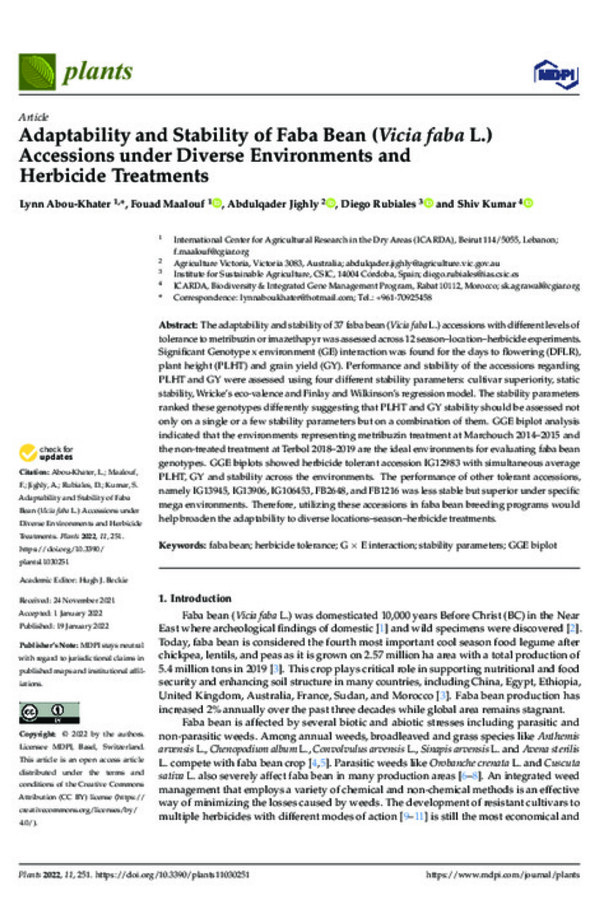
Adaptability and Stability of Faba Bean (Vicia faba L.) Accessions under Diverse Environments and Herbicide Treatments
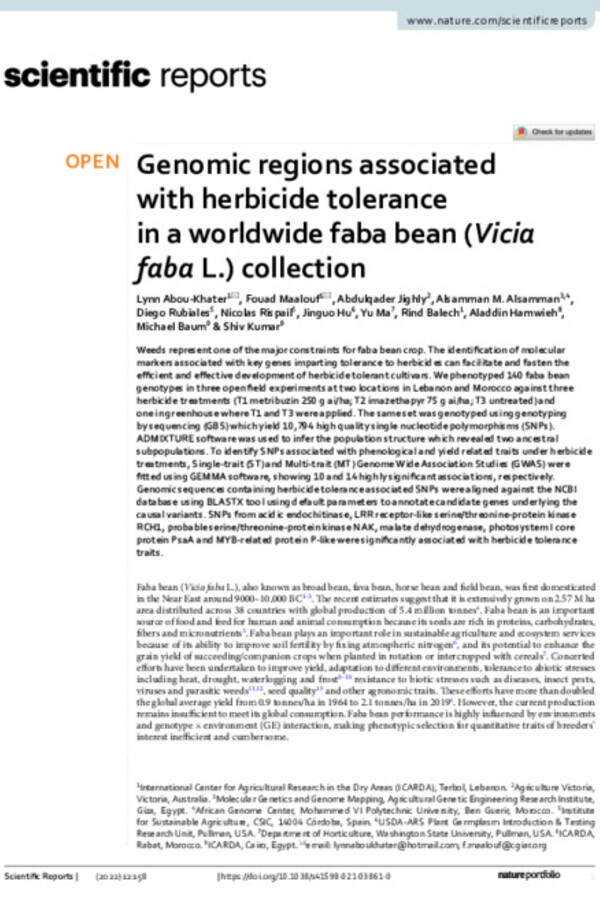
Genomic regions associated with herbicide tolerance in a worldwide faba bean (Vicia faba L.) collection
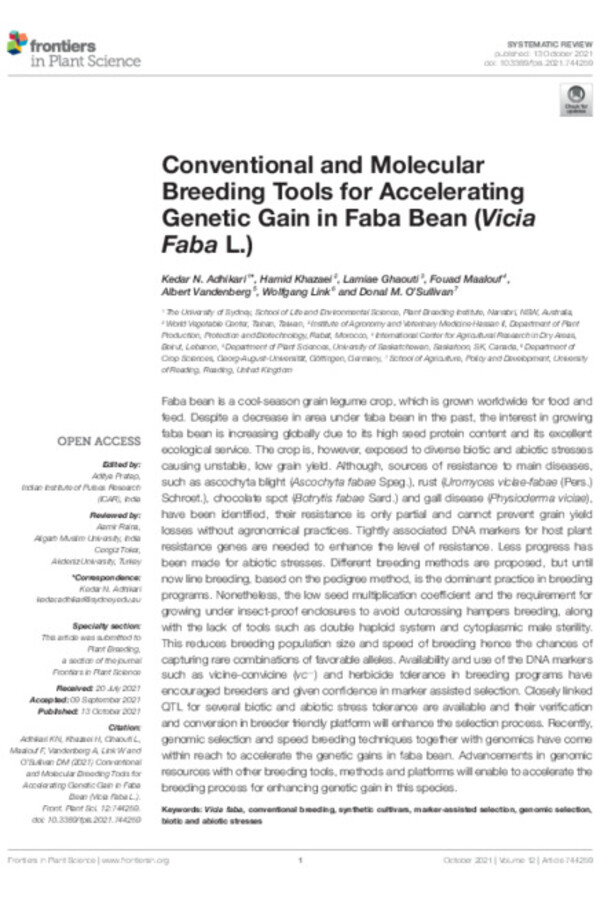
Conventional and Molecular Breeding Tools for Accelerating Genetic Gain in Faba Bean (Vicia Faba L.)
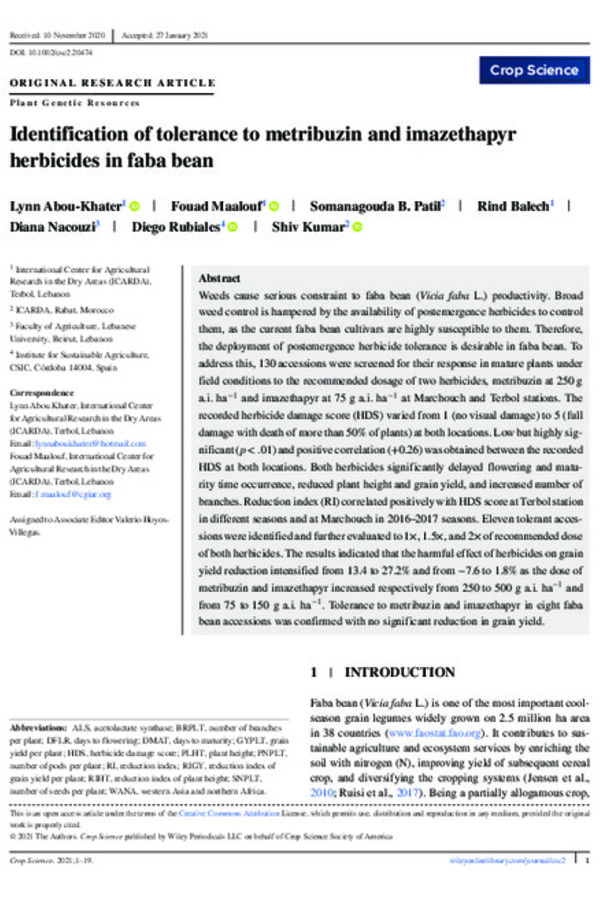
Identification of tolerance to metribuzin and imazethapyr herbicides in faba bean
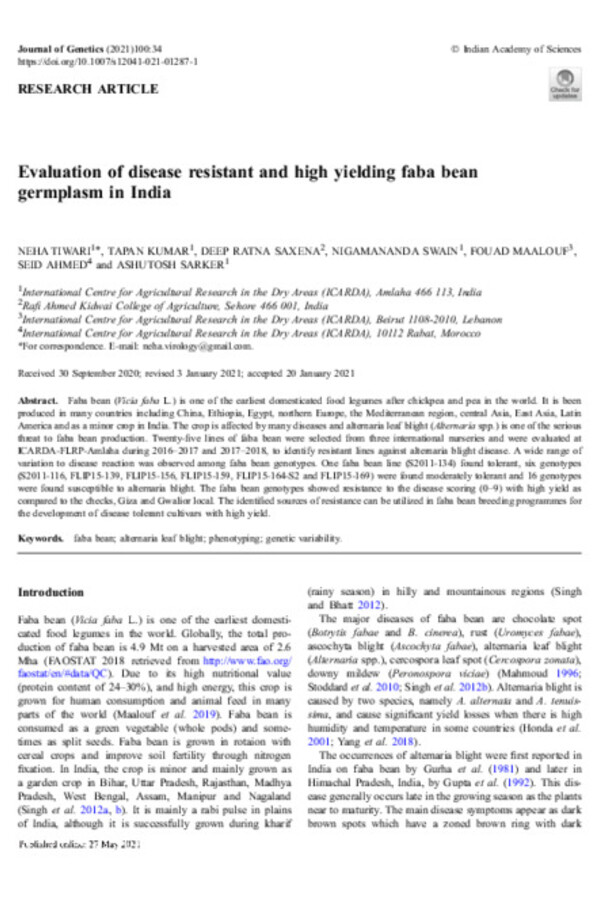
Evaluation of disease resistant and high yielding faba bean germplasm in India

Developing a new genic SSR primer database in faba bean (Vicia faba L.)

First sources of resistance in faba bean (Vicia faba L.) to the stem borer weevil, Lixus algirus L. (Coleoptera: Curculionidae)
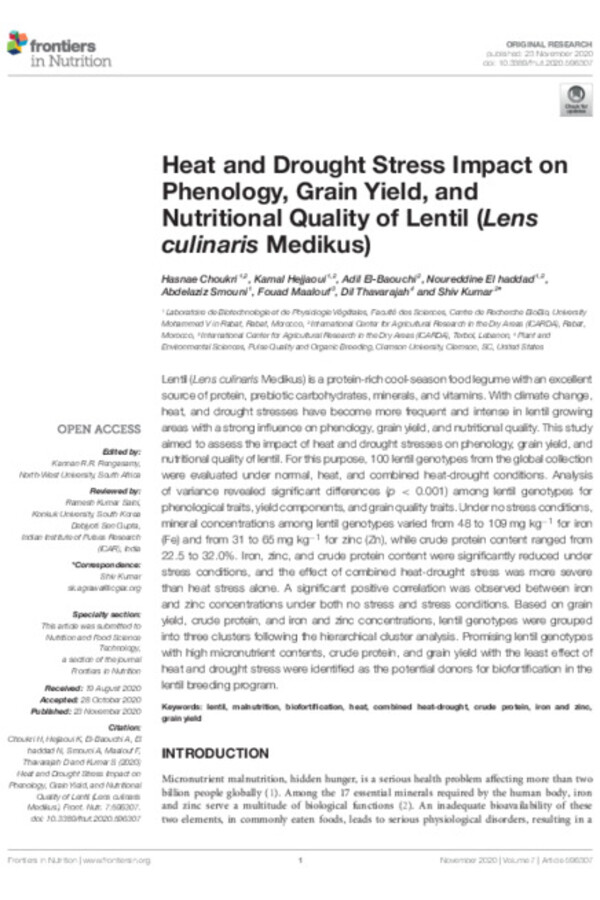
Heat and Drought Stress Impact on Phenology, Grain Yield, and Nutritional Quality of Lentil (Lens culinaris Medikus)
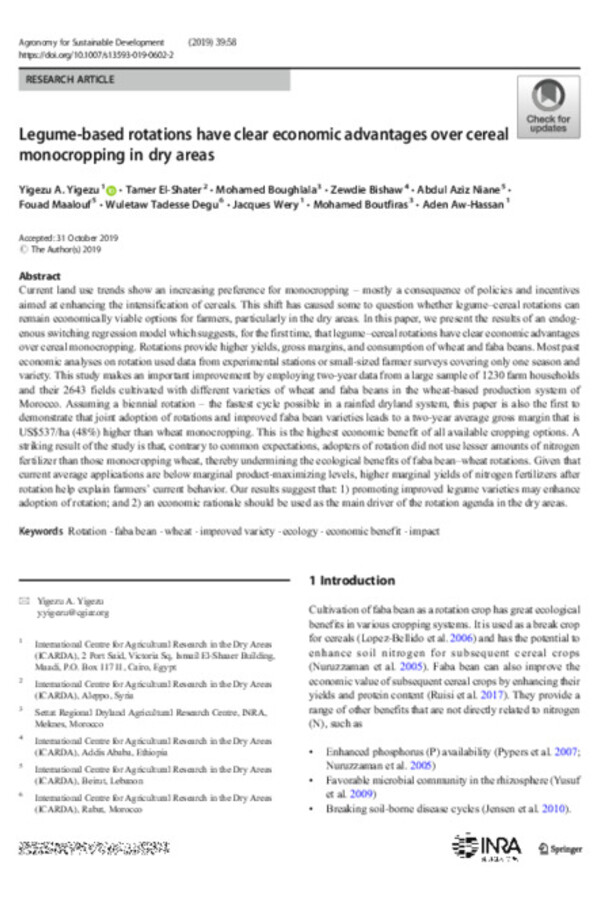
Legume-based rotations have clear economic advantages over cereal monocropping in dry areas
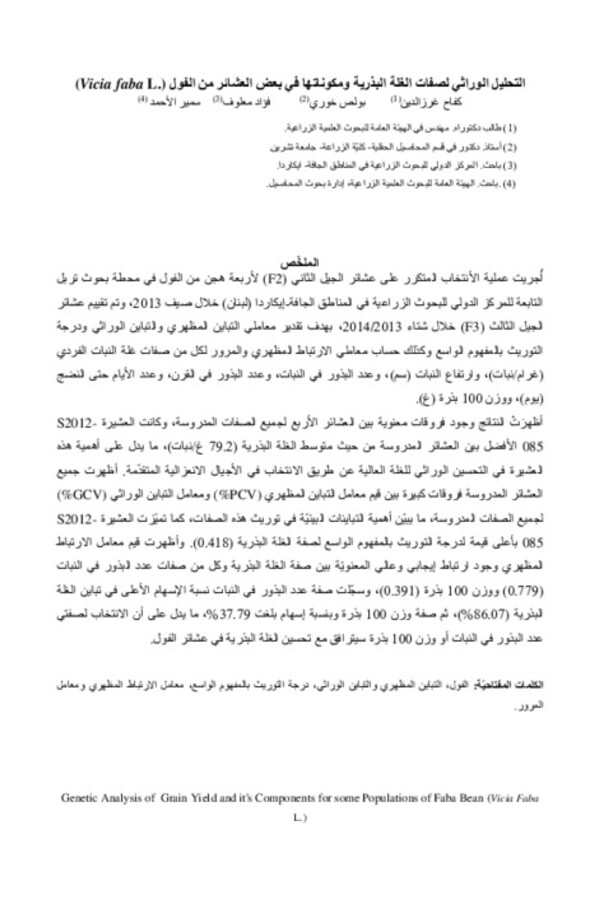
Genetic Analysis of Grain Yield and it's Components for some Populations of Faba Bean

New faba bean germplasm with multiple resistances to Ascochyta blight, chocolate spot and rust diseases
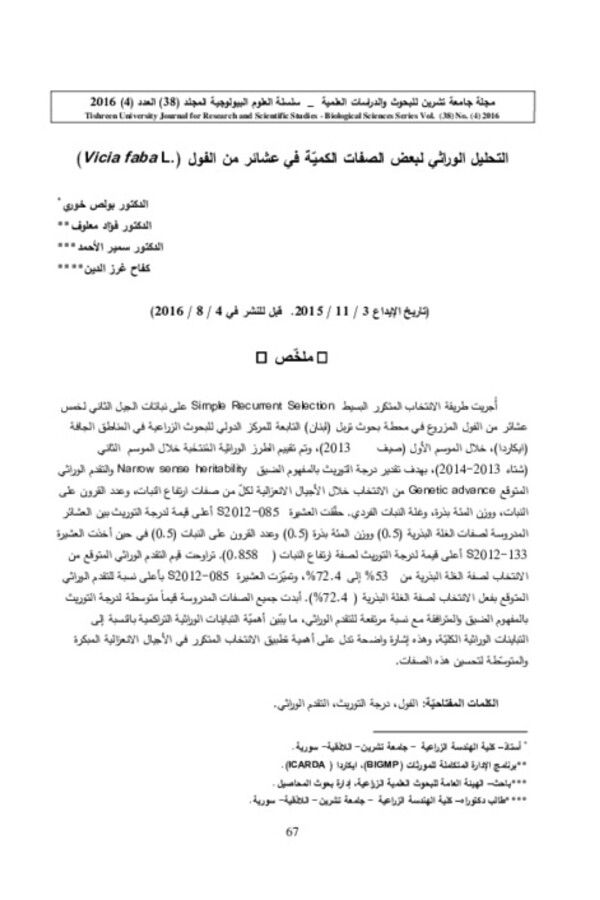
Genetic Analysis for Some Quantitative Traits in some populations of Faba Bean

Integrated management of Ascochyta blight (Didymella fabae) on faba bean under Mediterranean conditions

Evaluation of faba bean breeding lines for spectral indices, yield traits and yield stability under diverse environments

Genetic enhancement of food legumes for nutritional security and sustainable cereal-based cropping systems

Capturing the Heterogeneity of the Error Variances of a Group of Genotypes in Crop Cultivar Trials
